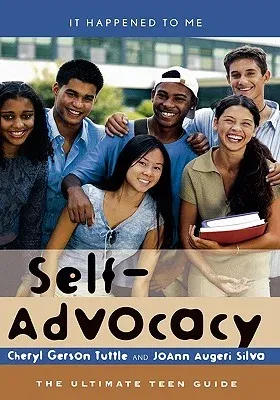Young people come to realize, sometimes painfully early, that it isn't
always possible to depend on adults to make sure they are treated
safely, fairly, and legally. When teens are faced with situations that
are unfair, immoral, illegal, and unjust, they do not need to be
victims. They can learn to speak up for themselves effectively to
improve their own lives and the lives of others. The skill of
self-advocacy rarely comes naturally for teens. Self-Advocacy: The
Ultimate Teen Guide offers a set of skills for young people to sort
through and acquire and encourages them to speak up about what is
bothering them. The book gives them helpful tools they can adapt to deal
with adults they must work with-and in some cases against-in order to
come to a solution to their problem. Self-Advocacy provides information
teens need to have to advocate for themselves. The introduction and
first three chapters explain what self-advocacy is; identify when and
why it might be necessary for teens to speak up for themselves; provide
a step-by-step guide on how to self-advocate successfully; and offer
specific, real-world advice about how to wisely use the power of the
media to publicize their cause. Seven issue-specific chapters follow.
Each topic is treated in a dignified, organized, and comprehensive way,
providing information teens can use and resources they can draw upon.
The issues and information in those chapters deal with the real world
and don't shy away from the difficulties young people encounter every
day, such as personal rights, school issues, learning disabilities,
physical disability, sexuality, legal issues, and foster care. Each
chapter includes the voices and experiences of teens who have
encountered issues and decided to speak up for and get what they need.
Teens who learn how to advocate for themselves and then act are not only
taking steps to right whatever wrong they have been facing, they are
also preparing themselves for a successful adult life.

